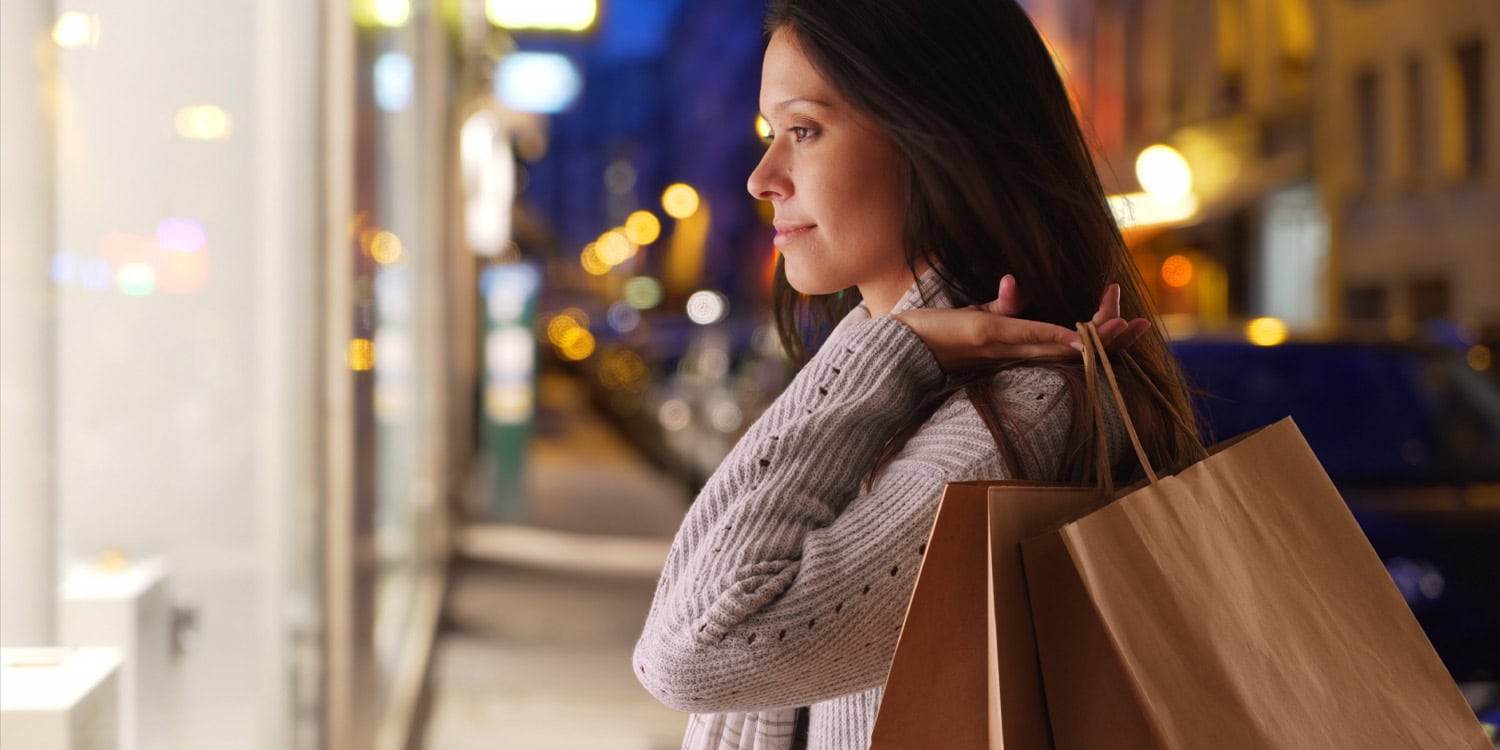A recent study published in Psychology & Marketing provides insight into how our internal body clocks, or chronotypes, may influence the happiness we derive from the things we buy. According to the research, individuals who identify as “night owls” tend to find more happiness and satisfaction from material purchases—such as clothing or gadgets—than from experiences like concerts or vacations. In contrast, “morning larks”—people who prefer to wake up early—derive greater happiness from experiential purchases.
Previous research has shown that people generally gain more happiness from experiential purchases, a phenomenon known as the “experiential advantage.” The idea is that experiences, such as vacations or dining out, lead to long-lasting happiness because they foster social connections, contribute to our sense of identity, and often allow us to relive the memories. Material goods, on the other hand, tend to offer only short-term satisfaction.
However, this concept has not held true in every case. Researchers have found that people who are more materialistic or come from lower socioeconomic backgrounds may experience greater happiness from material purchases.
The new study aimed to explore whether the experiential advantage applies equally to all people or whether it depends on individual differences, such as one’s chronotype—the tendency to prefer morning or evening activity. This is particularly important because previous research has shown that evening types, or “night owls,” tend to have lower overall happiness due to lifestyle misalignments with typical work and social schedules.
“I am the quintessential night owl, and this has had varied reactions amongst people. Some have been supportive of me and my schedule, while others made fun of it. So, it motivated me to study more about chronotypes (i.e. larks vs. night owls), and I was fascinated by the findings in biology and psychology,” said study author Pramit Banerjee, an assistant professor at the Craig School of Business at Missouri Western State University.
“Essentially, due to biological, genetic and evolutionary reasons, some people function better at night while others do so in the mornings. Some find it easy to get up early, while others find it easier to stay up late. Of course, the societal cycle does not really take this into account. I also realized that there wasn’t much discourse surrounding this in the marketing literature which made me interested in working on this.”
“At the same time, I was already working on projects related to experiential vs. material purchases and I was familiar with what we know as the experiential advantage which predicts that people in general find greater happiness from their experiential purchases in the long run. My literature review also indicated that night owls were generally less happy than larks. Thus, the question- would night owls derive happiness from experiential purchases like the general populace?”
The researchers conducted a series of five experiments with 1,122 participants in total. The participants were classified into two groups based on their chronotype: morning types and evening types. The participants were asked to recall past purchases, both material and experiential, and to report how happy those purchases made them. The study also measured participants’ sense of how distant those purchases felt in time—a factor that was hypothesized to affect happiness differently for morning and evening types.
In some studies, participants were randomly assigned to either recall a material or an experiential purchase and then rate how much happiness it brought them. In other studies, they were asked to choose between recalling a material or experiential purchase and then indicate which one made them happier overall.
To ensure that the results were not biased by the types of purchases being recalled, the researchers controlled for variables such as the cost of the purchase, the amount of time that had passed since the purchase, and participants’ income levels. In one of the experiments, the product was held constant—participants were asked to focus on a barbecue grill—but half the participants were instructed to think about it in terms of its material qualities (as an object they owned), and the other half were told to think about it in terms of the experiences they had using it.
The researchers also tested whether the perceived distance from the purchase, or how far away in time it felt, might mediate the relationship between chronotype and happiness. The idea was that evening types, who tend to have a different sense of time perception, might feel more distant from their experiential purchases, which could reduce the happiness they derived from them.
The results consistently showed that evening types derived less happiness from their experiential purchases compared to material purchases. Morning types, on the other hand, experienced the expected “experiential advantage”—they were generally happier with experiences than with material possessions. The key difference seemed to be how distant these purchases felt in time.
For evening types, experiential purchases felt more distant, even if the event had occurred recently. This feeling of distance seemed to reduce the emotional impact of the experience, leading to lower levels of happiness. In contrast, material purchases, which can be physically present and used over time, did not evoke the same sense of distance. As a result, evening types found more lasting happiness from material goods.
“The notion of the experiential advantage has seeped into the common consciousness, and there is a tendency to generalize this,” Banerjee told PsyPost. “However, we need to apply this with greater nuance. Night owls do not seem to derive any long-term happiness from their experiential purchases. It is lower than what larks derive. So, if you are a night owl- do not be under the assumption that you will feel happier when you think about your past experiences. Material purchases may provide you relatively higher happiness.”
Interestingly, the researchers found that the happiness derived from experiential purchases by evening types decreased as their sense of subjective distance from the experience increased. This suggests that evening types may have a unique perception of time that affects how they relive or recall past experiences. Because experiences are often fleeting and rely on memory, they may feel less emotionally connected to them over time.
“While we did theorize that night owls would feel a lower degree of happiness from their experiential (vs. material) purchases due to the subjective distance they felt from their purchase, some might find the results counterintuitive,” Banerjee said. “After all, do we not associate night owls with night time fun and excitement? However, we look more at the retrospective happiness from purchases, and this is where we find that night owls derive lower happiness from experiential (vs. material) purchases.”
But like all research, the study has limitations. One limitation is that it focused primarily on past purchases, asking participants to recall their feelings about items or experiences they had already enjoyed.
“We use the classical paradigm of the experiential advantage in our research — i.e. measuring happiness from past consumption of experiential or material purchases,” Banerjee explained. “However, this does not mean that experiential consumption in the moment would not provide happiness. It is when you reminisce about it that you would feel lower happiness. Moreover, we do not test for anticipatory purchases either.”
Another limitation is that the study measured happiness at a single point in time. It would be interesting to explore whether these findings hold over longer periods, as happiness from purchases can change over time. For example, while an evening type might initially feel satisfied with a material purchase, this feeling could diminish if the item becomes less useful or relevant. Similarly, the happiness from experiential purchases might increase with time as memories become more cherished.
The researchers also noted that the social context in which purchases are made might play a role. For instance, evening types might feel happier with experiences when they are shared with close friends or family members, even if those experiences feel distant in time. Future research could examine whether the social aspects of experiential purchases can mitigate the effects of subjective distance for evening types.
“I am looking at how biases against night owls may manifest in various ways,” Banerjee said. “I hope to add to the literature surrounding this and also hope my work has some social impact too. There needs to be greater awareness about the inequities night owls face and measures to improve their well-being. These inequities arise from what is known as the Social Jetlag (Whitmann et al., 2006) wherein the social clock or work schedule (8am-5pm) is less favorable to night owls, as a result of which they suffer a poorer quality of life and also endure more mental health issues and an overall lower sense of well-being. There needs to be greater discourse surrounding this.”
The study, “Of happy larks and unhappy owls: Why morning versus evening types feel different levels of happiness from experiential versus material purchases,” was authored by Pramit Banerjee and Shashi Minchael.




